- Home
- Stephanie Laurens
The Ideal Bride (Cynster Novels) Page 3
The Ideal Bride (Cynster Novels) Read online
Page 3
Beside him, Hardacre cleared his throat. “Didn’t want to say anything to Mrs. Sutcliffe—no point. But that horse…”
Michael looked at him. “What about him?”
“I reckon the reason he bolted was because he’d been stung with pellets—found three tender spots on his left hindquarter, like marks left by stones from a slingshot.”
He frowned. “Boys—for a lark?”
“Dangerous lark if that be so, and I have to say I can’t think of any lad hereabouts silly enough to do such a thing.”
Hardacre was right; all the locals lived on horses—they’d know the likely outcome of such foolishness. “Perhaps there are visitors from London in the vicinity. Lads who wouldn’t know.”
“Aye, that’s possible,” Hardacre admitted. “Anyways, can’t see any likelihood of it happening again, least not to Mrs. Sutcliffe.”
“No, indeed. That would be like lightning striking twice.”
Hardacre headed back to the stable. Michael stood for a full minute staring down the drive, then he turned and climbed the terrace steps.
It was too late now to call on Geoffrey Mollison, especially not if his household was at sixes and sevens preparing for Caro’s dinner party. Indeed, there was now no need as he himself would be attending and thus would meet Geoffrey later.
Yet his impatience had eased; he was inclined to view Caro’s dinner as an opportunity rather than a distraction. Such an event would be the perfect setting in which to refresh his memory and further his acquaintance with Elizabeth, his ideal bride.
Feeling indebted to Caro, he strolled inside—he needed to unpack his evening gear.
—
“The enemy is engaged! Our campaign is under way.” A triumphant smile wreathing her face, Caro dropped into a chintz-covered armchair in the family parlor at Bramshaw House.
“Yes, but will it work?” Perched on the chaise, picture pretty in a ruffled gown of sprigged muslin with her long fair hair coiled at her nape, Elizabeth eyed her, hope and trepidation in her big blue eyes.
“Of course it will work!” Caro turned her triumph on the only other occupant of the parlor, her secretary, Edward Campbell, who was seated beside Elizabeth on the chaise. A sober, earnest, and reliable gentleman of twenty-three summers, Edward did not look at all the sort of gentleman to have swept Elizabeth off her feet. Appearances, as Caro well knew, could be deceptive.
Letting her smile fade, she met Edward’s eyes. “I assure you that when a gentleman like Michael Anstruther-Wetherby makes up his mind you are the ideal candidate for the position of his wife, the only way to avoid having to say the word ‘no’ and cling limpetlike to it in the teeth of the considerable pressure that will—make no doubt—be brought to bear, is to convince him before he makes his offer that he’s made a mistake.”
Although her words were for Elizabeth, she continued to watch Edward. If the pair were less than rock solid in their resolve, she wanted to see it, know it, now.
Until five days ago, she’d been happily ensconced in Derbyshire with Augusta and had expected to spend the summer months there. Two urgent summonses from Elizabeth, one to her, one to Edward, had brought them hotfoot to Hampshire via London.
Elizabeth had written, panicked at the prospect of finding herself facing an offer from Michael Anstruther-Wetherby. Caro had thought it a sham—she knew Michael’s age and his circle—but Elizabeth had related a conversation with her father in which Geoffrey, having ascertained that Elizabeth had formed no tendre for any gentleman she’d met while in town during the Season, had proceeded to sing Michael’s praises.
That, Caro had had to admit, sounded suspicious. Not because Michael wasn’t perfectly praiseworthy, but because Geoffrey had sought to point that out.
Edward, too, had had doubts over Elizabeth’s conjecture, but stopping in London on their way down, he’d dropped in on certain friends, like him aides and secretaries to the politically powerful. What he’d learned had brought him home pale and tense. The whispers had it that Michael Anstruther-Wetherby had been put on notice for a cabinet position; part of that notice concerned his marital status and the suggestion he alter it by autumn.
Caro had delayed another day in town, long enough to pay a morning call on Michael’s formidable aunt, Harriet Jennet. They’d spoken political hostess to diplomatic hostess; Caro hadn’t even had to broach the subject—Harriet had seized the opportunity to drop a word in her ear regarding Michael’s interest in Elizabeth.
That had been more than confirmation enough. Matters were, indeed, as serious as Elizabeth had supposed.
Caro shifted her gaze to her niece. She herself had been a diplomatic bride, a young and innocent seventeen-year-old swept off her feet by the supremely polished attentions of an older—in her case much older—man. She, admittedly, had had no other love in her life, but not for the world would she wish such a marriage on any other young girl.
Although she’d never known love herself, she had every sympathy for Elizabeth and Edward. It was in her household in Lisbon they’d first met; she’d never encouraged them, but to her mind that also meant not opposing them. If love was to be, it would be, and in their case, it had indeed grown. They’d remained steadfast for more than three years, and neither showed any sign of wavering in their affection.
She’d already been thinking of what she might do to further Edward’s career, at least to the point that he could offer for Elizabeth’s hand. That, however, was not a matter for today. Michael’s prospective offer had to be dealt with first. Now—immediately.
“You have to understand,” she explained, “that once Michael makes an offer, it will be much harder to get him to withdraw it, and harder still for you, placed as you are, your father’s daughter, to refuse it. Our wisest course therefore is to ensure the offer is never made, and that means changing Michael’s mind.”
His brown eyes serious, Edward looked at Elizabeth. “I agree. It’s by far the best way—the tack most likely to succeed with least damage to all.”
Elizabeth met his gaze, then glanced at Caro. Then sighed. “Very well. I concede you’re right. So what must I do?”
Caro smiled encouragingly. “For tonight, we must concentrate on raising the question of your suitability in his mind. We don’t need to repulse him all at once, but simply make him pause and consider. However, whatever we do can be neither overt nor obvious.‘’
Imagining the possibilities, she narrowed her eyes. “The key to manipulating the opinions of a gentleman like Michael Anstruther-Wetherby is always to be subtle and circumspect.”
Chapter 2
Michael climbed the steps of Bramshaw House at ten minutes past eight that evening. Catten, the butler, knew him well; he conducted him to the formal drawing room and announced him, then deferentially stepped back. Michael walked into the long room, into a fractional pause in the buzz of conversation, smiling easily as eyes, then smiles came his way.
Engaged with a group about the fireplace, Caro saw him. Pausing a few paces inside the room, he waited while she disengaged and came to greet him, the skirts of her oyster silk gown softly shushing.
“My savior!” Smiling, she gave him her hand; when he released it, she confidently tucked it in his arm, swirling to stand beside him as she surveyed the guests. “I suspect you know most, but I doubt you’ll have met the Portuguese contingent.” She slanted him a glance. “Shall we?”
“By all means.” He allowed her to steer him toward the group she’d recently left.
She leaned close, murmured, “The ambassador and his wife are dancing attendance at Brighton, but both couples here are, if anything, even more influential.”
She smiled as they joined the group. “The Duke and Duchess of Oporto.” With a gesture she indicated a dark gentleman with a cadaverous face and a tall, equally dark and haughty matron. “The Count and Countess of Albufeira.” Another dark-haired gentleman, but quite different from the first—a portly soul with twinkling eyes and the high color of one who
was fond of his wine—and a brown-haired, handsome but severe lady. “And this is Ferdinand Leponte, the count’s nephew. Allow me to present Mr. Michael Anstruther-Wetherby. Michael is our local Member of Parliament.”
Everyone exchanged bows, murmured polite greetings. Relinquishing Michael’s arm, Caro placed a hand on the duke’s sleeve. “I think it would be wise for you to get to know each other.” Eyes gleaming, she glanced at Michael. “I’ve heard a whisper that in future Mr. Anstruther-Wetherby will be spending more time in our diplomatic circles as distinct from the purely political.”
He met her gaze, arched a brow, not entirely surprised she’d heard the rumors. She hadn’t, however, revealed such knowledge earlier in the day.
Interpreting their interplay as confirmation, the count quickly engaged him; within minutes, the duke had joined in. Their wives were equally interested, with a few well-directed questions quickly establishing his background and connections.
He was content to encourage them, to listen to their views on what they saw as the most important aspects in the relationship between their two countries. They were keen to sow the right seeds, to influence his opinions before he’d truly formed them—or more particularly before he heard the views of the Foreign Office mandarins.
Caro gently touched his arm and excused herself. Although he continued to give his attention to the duke and count, he was aware that Ferdinand Leponte followed her, claiming the position by her side.
Other than exchanging greetings, Ferdinand, unlike his countrymen, had evinced not the smallest interest in him. Ferdinand looked to be around thirty years old; he was black-haired, olive-skinned, and outrageously handsome, with a brilliant smile and large dark eyes.
A womanizer almost certainly—there was something about him that left little room for doubt. He was typical of many foreign embassy aides“; relatives of those such as the count, their positions were little more than passports into diplomatic circles. Ferdinand was definitely a hanger-on, but it wasn’t the count on whom he was intent on hanging.
When Caro returned ten minutes later, swooping in to artfully extract him and lead Michael to meet her other guests, Ferdinand was still trailing at her heels.
Excusing himself to the other Portuguese, Michael met Ferdi-nand’s eyes. He bowed as if in farewell. Ferdinand smiled ingenuously. As Caro took his arm and led him to the next group, Ferdinand fell in on her other side.
“You are not to twit the general,” Caro hissed.
He glanced at her, and realized she was speaking to Ferdinand.
Ferdinand grinned, all Latin charm. “But it is so difficult to resist.”
Caro threw him a repressive glance, then they reached the group before the long windows, and she launched into introductions.
Michael shook hands with General Kleber, a Prussian, then the Hapsburg ambassador and his wife, both of whom he knew.
The general was an older gentleman, bluff and severe. “It is good that we now have peace, but there is much to be done. My country is very interested in the building of ships—do you know much of the shipyards?”
Denying any knowledge of the industry, Michael moved to draw the ambassador into the conversation. The general pointed out that Austria had no seaport and thus no navy. Michael swung the conversation to agriculture, unsurprised when Caro seized the moment to steer Ferdinand away.
She returned minutes later alone. Rescuing Michael, she introduced him to the other guests—three English diplomats and their wives; a Scots parliamentarian, Mr. Driscoll; his wife and two daughters; and a notoriously attractive Irish peer, Lord Sommerby, whom Mrs. Driscoll was eyeing askance.
Finally, with a softening smile, Caro turned to the last group in the room. She waved at her brother in affectionate dismissal; exchanging grins, Michael shook hands with Geoffrey. He was a large man, heavy-set, with sloping shoulders that accentuated a care-worn air; for all he’d been the local Member for years, a gathering of this caliber was in some ways beyond him.
“I understand you and Elizabeth met in town.” With a fond smile, Caro indicated the slim young woman standing beside Geoffrey.
At last. “Indeed.” Michael took the slender hand Elizabeth extended. “Miss Mollison.” He’d seen her when he’d entered, but had been careful not to show any particular interest. He now tried to catch her eye, tried to gauge her reaction to him, but although she smiled sunnily up at him and their gazes met, he could detect no real atten-tiveness behind her blue eyes.
They deflected almost instantly as Caro introduced the younger man standing somewhat diffidently beside Elizabeth. “My secretary, Edward Campbell. He was Camden’s aide, but I grew so used to relying on him that I decided he was simply too valuable to let go.”
Campbell threw her a look as if to remind her he was only her secretary. He offered his hand; Michael shook it, visited by an urge to recommend Campbell keep his eye on Ferdinand. Suppressing it, he turned instead to the most urgent matter on his plate: Elizabeth Mollison.
“I hear you’re in line for advancement,” Geoffrey said.
He smiled easily. “That’s for the Prime Minister to say, and he won’t, not until autumn.”
“He always did play his cards close to his chest. So, what’s the state of the Irish these days? Think you’ll head that way?”
Exchanging political news with Geoffrey was the perfect cover for looking over his daughter. Elizabeth stood beside her father and idly surveyed the room; she affected no interest in their conversation— indeed, seemed oblivious of it. Caro claimed Campbell’s arm and went to circulate. Michael shifted so he could better observe Elizabeth.
There was something not quite right…
He glanced at Caro, then back at Elizabeth, then surreptitiously noted the gowns the other two young ladies, Driscoll’s daughters, were wearing. One was soft pink, the other pale primrose.
Elizabeth had chosen to wear white.
Many unmarried young ladies did, especially during their first Season. Elizabeth had just completed hers, yet… white didn’t suit her. She was already so fair, and with her pale blond hair the result was poor. Especially as she’d chosen to complement the gauzy gown with diamonds.
Considering the outcome, Michael inwardly frowned. He would never presume to instruct a lady in what to wear, yet he was aware of the difference between a well-dressed lady and a poorly dressed one. In political circles, one rarely saw the latter.
Seeing Elizabeth as she was was something of a jolt. Quite aside from the white making her appear washed out, the combination of the virginal gown with the blatant fire of the diamonds struck a definitely wrong note.
He glanced again at Caro. Oyster silk, draped to perfection, outlined the seductive curves of her body; the color subtly complemented her fair but warm skin, while her gloriously untameable mass of fine hair shimmered under the candlelight in a medley of browns and golds. She wore silver and pearls, echoing her eyes and their curious silver-blue hue.
Looking at Elizabeth, he couldn’t imagine that Caro hadn’t advised against her present attire. He concluded that behind Elizabeth’s innocent air lay a will of some strength—one at least stubborn enough to ignore Caro’s injunctions.
His inward frown deepened. A stubborn and headstrong will—was that good? Or not so good? An inability to take advice from those patently well qualified to supply it… ?
A number of guests had arrived late; Caro brought them around, performing the introductions. While two newcomers were chatting with Geoffrey, Michael turned to Elizabeth. “As I recall, we met at Lady Hannaford’s ball in May—did you enjoy the rest of your first Season?”
“Oh, yes!” Elizabeth’s eyes lit; she turned a glowing face to him. “The balls were such fun—I do so adore dancing. And all the other entertainments, too—well, except for the dinners. They were often boring. But I made a large number of friends.” She smiled ingenuously up at him. “Do you know the Hartfords? Melissa Hartford and her brother, Derek?”
She paused, wa
ited, clearly expecting an answer. He shifted. “Ah… no.” He had a suspicion Derek Hartford would prove to be twenty, and Melissa even younger.
“Oh. Well, they’ve become my best friends. We go all over town together, exploring and gallivanting. And Jennifer Rickards joins us, too, and her cousins Eustace and Brian Hollings.” Elizabeth paused in her bright prattle, then frowned across the room. “Those two girls look rather lost, don’t you think? I’d better go and speak with them.”
With that, she flashed him a brilliant smile and swanned off— without properly excusing herself.
Michael watched her go, feeling rather… disoriented. She’d been treating him like a family friend, one with whom she didn’t need to stand on ceremony, yet…
Silk sussurated beside him; the scent of honeysuckle, faint and elusive, teased his senses.
He looked down as Caro slid her hand onto his arm. She’d followed his gaze to Elizabeth; she glanced up and pulled a face at him. “I know, but you needn’t think it was my idea.”
He smiled down at her. “I didn’t.”
Looking again at Elizabeth, she sighed. “Unfortunately, she was adamant over the white and simultaneously desperate to wear the diamonds—for courage. They were Alice’s, you see.”
Alice was—had been—Elizabeth’s mother, Geoffrey’s wife. Michael blinked. “Courage?”
“She’s not used to evenings of this ilk, so I suppose she felt in need of bolstering.” Caro looked up at him, her expressive face and brilliant eyes both teasing and somehow communicating. “It’s just a passing phase—a part of learning to deal with this sort of gathering. She’ll soon find her feet.”
She looked away. He stared at her profile. Had she guessed his thoughts vis-a-vis Elizabeth?
Should he speak, enlist her aid—
She came up on her toes, stretching to see over the crowd. “Is that…?”
He followed her gaze and saw Catten standing in the doorway.
“At last!” Caro flashed him a brilliant smile, sliding her arm from his. “Do excuse me while I organize.”

 Lady Osbaldestone’s Plum Puddings: Lady Osbaldestone’s Christmas Chronicles Volume 3
Lady Osbaldestone’s Plum Puddings: Lady Osbaldestone’s Christmas Chronicles Volume 3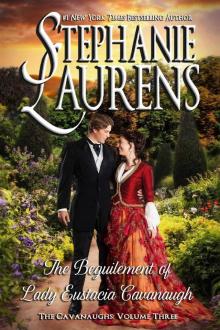 The Beguilement of Lady Eustacia Cavanagh: The Cavanaughs Volume 3
The Beguilement of Lady Eustacia Cavanagh: The Cavanaughs Volume 3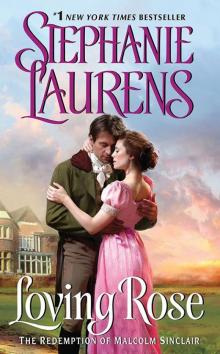 Loving Rose: The Redemption of Malcolm Sinclair (Casebook of Barnaby Adair)
Loving Rose: The Redemption of Malcolm Sinclair (Casebook of Barnaby Adair)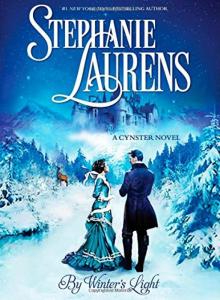 By Winter's Light
By Winter's Light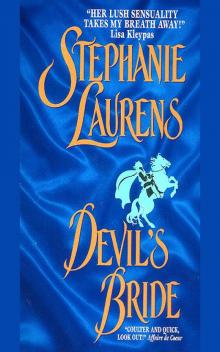 Devil's Bride
Devil's Bride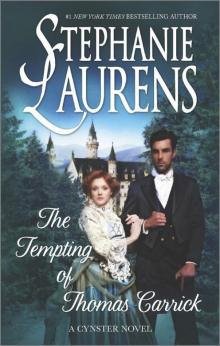 The Tempting of Thomas Carrick
The Tempting of Thomas Carrick![Cynster [22.00] A Match for Marcus Cynster Read online](http://i1.bookreadfree.com/i/03/16/cynster_[22_00]_a_match_for_marcus_cynster_preview.jpg) Cynster [22.00] A Match for Marcus Cynster
Cynster [22.00] A Match for Marcus Cynster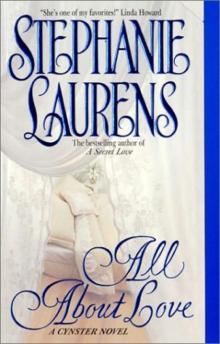 All About Love c-6
All About Love c-6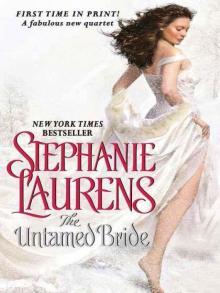 Cobra 01 The Untamed Bride
Cobra 01 The Untamed Bride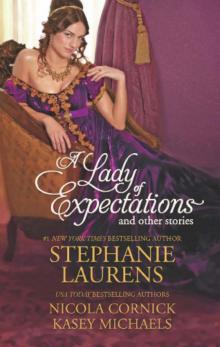 A Lady of Expectations and Other Stories
A Lady of Expectations and Other Stories By Winter's Light_A Cynster Novel
By Winter's Light_A Cynster Novel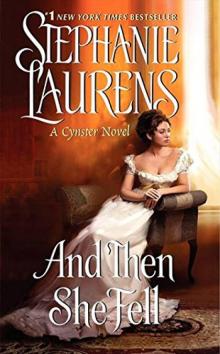 And Then She Fell
And Then She Fell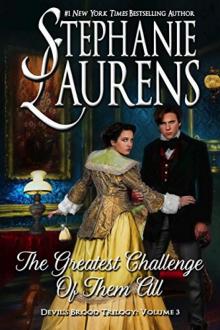 The Greatest Challenge of Them All
The Greatest Challenge of Them All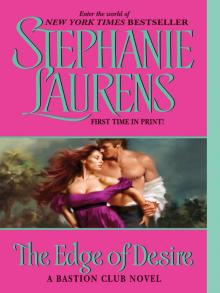 The Edge of Desire
The Edge of Desire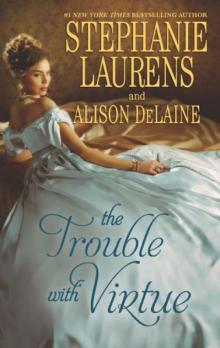 The Trouble With Virtue: A Comfortable WifeA Lady by Day
The Trouble With Virtue: A Comfortable WifeA Lady by Day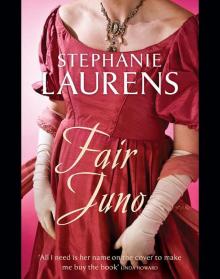 Fair Juno
Fair Juno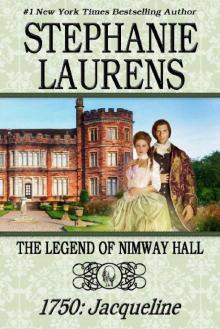 THE LEGEND OF NIMWAY HALL: 1750 - JACQUELINE
THE LEGEND OF NIMWAY HALL: 1750 - JACQUELINE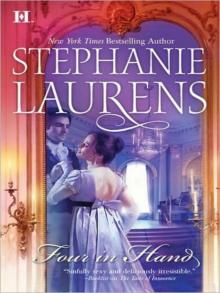 Four In Hand
Four In Hand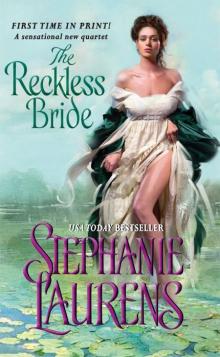 The Reckless Bride
The Reckless Bride Stephanie Laurens Rogues' Reform Bundle
Stephanie Laurens Rogues' Reform Bundle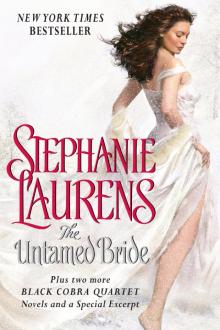 The Untamed Bride Plus Black Cobra 02-03 and Special Excerpt
The Untamed Bride Plus Black Cobra 02-03 and Special Excerpt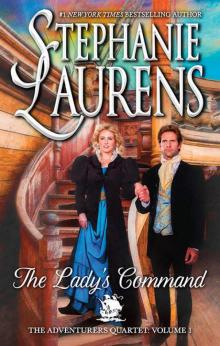 The Lady's Command (Adventurers Quartet #1)
The Lady's Command (Adventurers Quartet #1)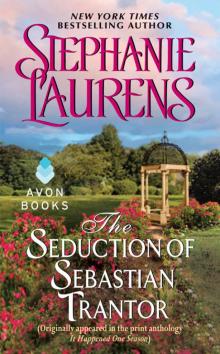 The Seduction of Sebastian Trantor
The Seduction of Sebastian Trantor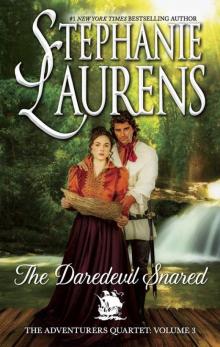 The Daredevil Snared (The Adventurers Quartet Book 3)
The Daredevil Snared (The Adventurers Quartet Book 3)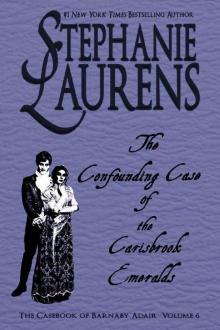 The Confounding Case Of The Carisbrook Emeralds (The Casebook of Barnaby Adair 6)
The Confounding Case Of The Carisbrook Emeralds (The Casebook of Barnaby Adair 6)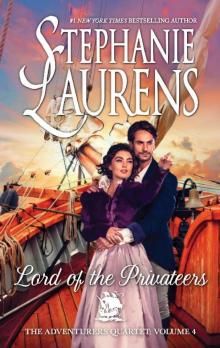 Lord of the Privateers (The Adventurers Quartet)
Lord of the Privateers (The Adventurers Quartet)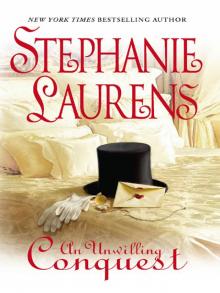 An Unwilling Conquest
An Unwilling Conquest Brazen Bride
Brazen Bride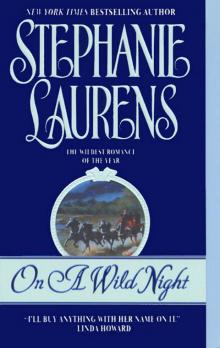 On a Wild Night
On a Wild Night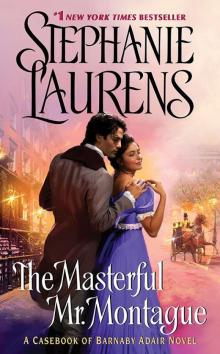 The Masterful Mr. Montague: A Casebook of Barnaby Adair Novel
The Masterful Mr. Montague: A Casebook of Barnaby Adair Novel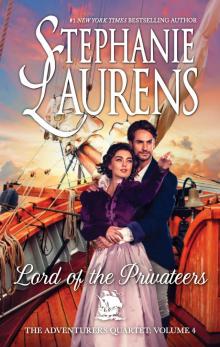 Lord of the Privateers
Lord of the Privateers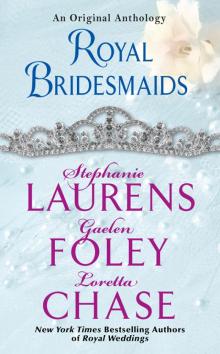 Royal Bridesmaids
Royal Bridesmaids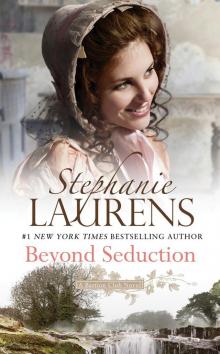 Beyond Seduction
Beyond Seduction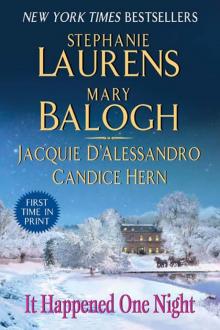 It Happened One Night
It Happened One Night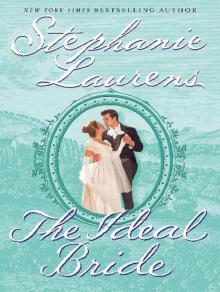 The Ideal Bride
The Ideal Bride The Promise in a Kiss
The Promise in a Kiss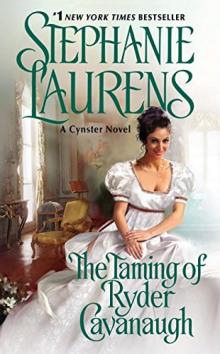 The Taming of Ryder Cavanaugh
The Taming of Ryder Cavanaugh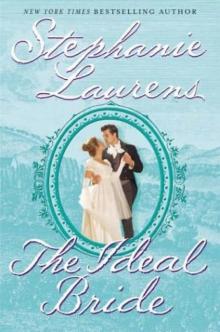 The Ideal Bride c-12
The Ideal Bride c-12 All About Love
All About Love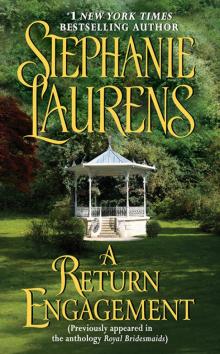 A Return Engagement
A Return Engagement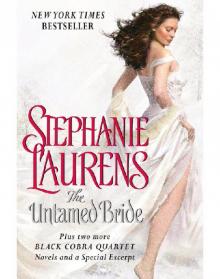 The Untamed Bride Plus Two Full Novels and Bonus Material
The Untamed Bride Plus Two Full Novels and Bonus Material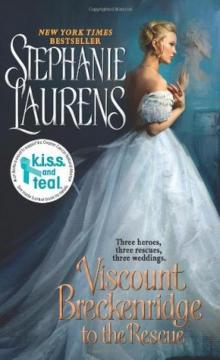 Viscount Breckenridge to the Rescue
Viscount Breckenridge to the Rescue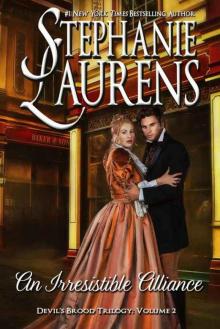 An Irresistible Alliance (Cynsters Next Generation Novels Book 5)
An Irresistible Alliance (Cynsters Next Generation Novels Book 5)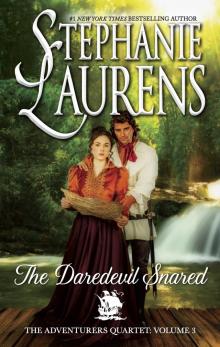 The Daredevil Snared
The Daredevil Snared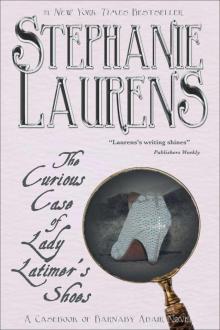 The Curious Case of Lady Latimer's Shoes: A Casebook of Barnaby Adair Novel
The Curious Case of Lady Latimer's Shoes: A Casebook of Barnaby Adair Novel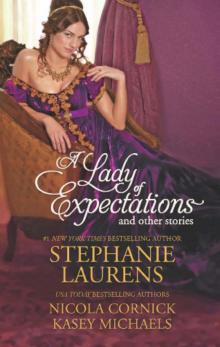 A Lady of Expectations and Other Stories: A Lady of ExpectationsThe Secrets of a CourtesanHow to Woo a Spinster
A Lady of Expectations and Other Stories: A Lady of ExpectationsThe Secrets of a CourtesanHow to Woo a Spinster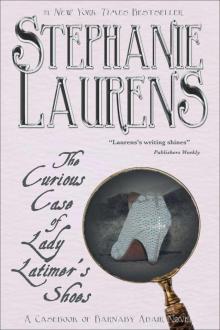 The Curious Case of Lady Latimer's Shoes: A Casebook of Barnaby Adair Novel (The Casebook of Barnaby Adair)
The Curious Case of Lady Latimer's Shoes: A Casebook of Barnaby Adair Novel (The Casebook of Barnaby Adair)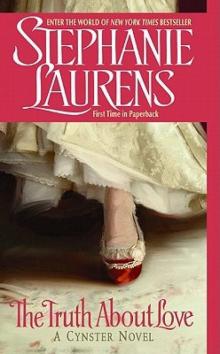 The Truth About Love
The Truth About Love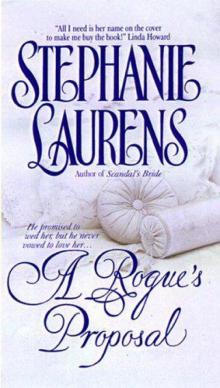 A Rogue's Proposal
A Rogue's Proposal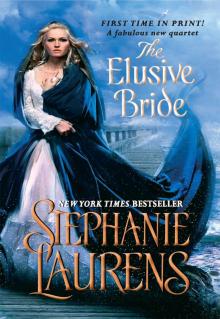 The Elusive Bride
The Elusive Bride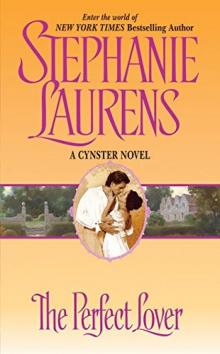 The Perfect Lover
The Perfect Lover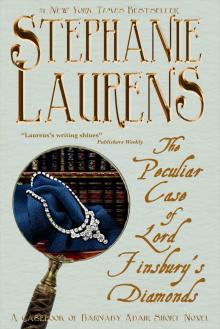 The Peculiar Case of Lord Finsbury's Diamonds: A Casebook of Barnaby Adair Short Novel
The Peculiar Case of Lord Finsbury's Diamonds: A Casebook of Barnaby Adair Short Novel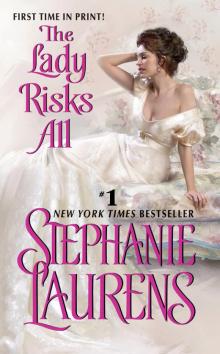 The Lady Risks All
The Lady Risks All The Murder at Mandeville Hall: The Casebook of Barnaby Adair: Volume 7
The Murder at Mandeville Hall: The Casebook of Barnaby Adair: Volume 7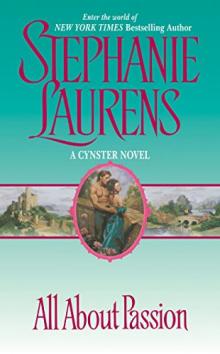 All About Passion
All About Passion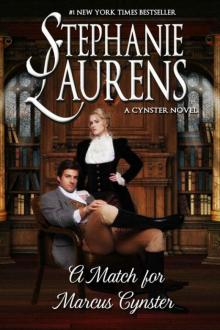 A Match for Marcus Cynster
A Match for Marcus Cynster By Winter's Light: A Cynster Novel (Cynster Special Book 2)
By Winter's Light: A Cynster Novel (Cynster Special Book 2)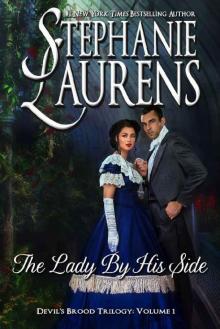 The Lady By His Side
The Lady By His Side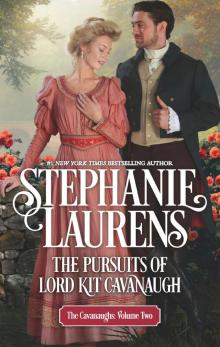 The Pursuits of Lord Kit Cavanaugh
The Pursuits of Lord Kit Cavanaugh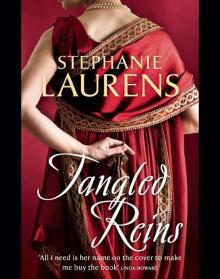 Tangled Reins
Tangled Reins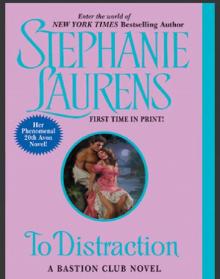 To Distraction
To Distraction A Rake's Vow
A Rake's Vow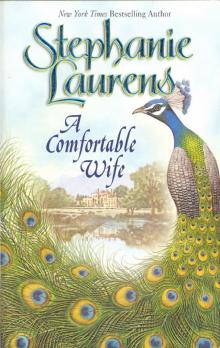 A Comfortable Wife
A Comfortable Wife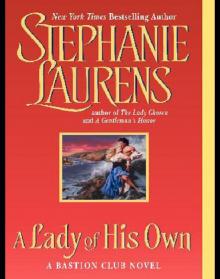 A Lady of His Own bc-3
A Lady of His Own bc-3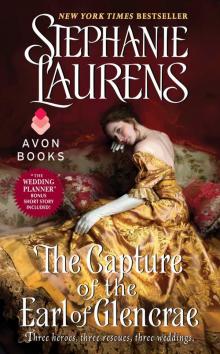 The Capture of the Earl of Glencrae
The Capture of the Earl of Glencrae Scandals Bride c-3
Scandals Bride c-3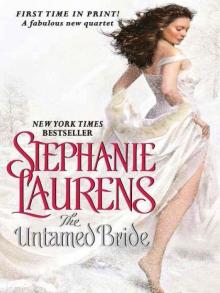 Untamed Bride
Untamed Bride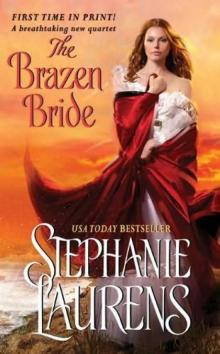 The Brazen Bride
The Brazen Bride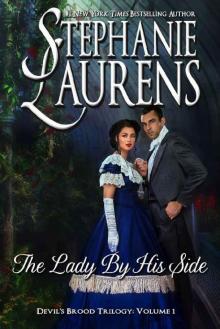 The Lady By His Side (Cynsters Next Generation Novels Book 4)
The Lady By His Side (Cynsters Next Generation Novels Book 4)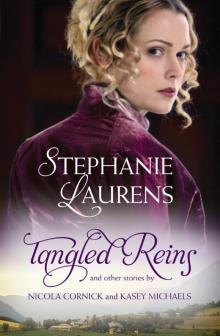 Tangled Reins and Other Stories
Tangled Reins and Other Stories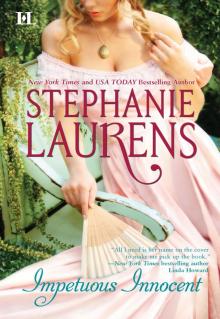 Impetuous Innocent
Impetuous Innocent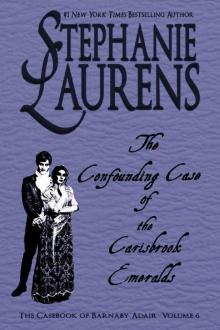 The Confounding Case Of The Carisbrook Emeralds
The Confounding Case Of The Carisbrook Emeralds Stephanie Laurens - B 6 Beyond Seduction
Stephanie Laurens - B 6 Beyond Seduction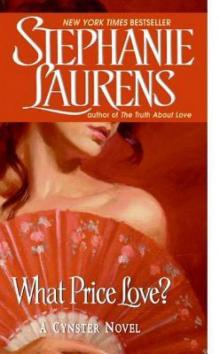 What Price Love?
What Price Love?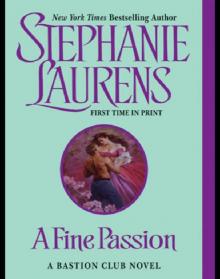 A Fine Passion
A Fine Passion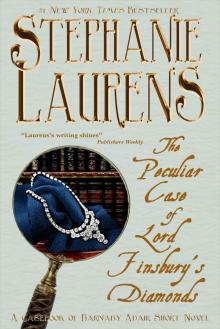 The Peculiar Case of Lord Finsbury's Diamonds: A Casebook of Barnaby Adair Short Novel (The Casebook of Barnaby Adair)
The Peculiar Case of Lord Finsbury's Diamonds: A Casebook of Barnaby Adair Short Novel (The Casebook of Barnaby Adair)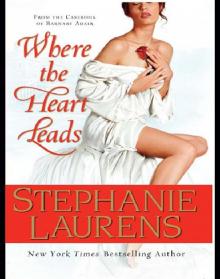 Where the Heart Leads
Where the Heart Leads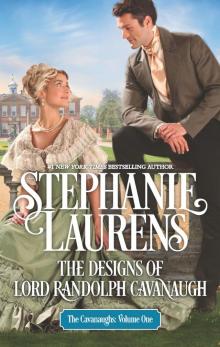 The Designs of Lord Randolph Cavanaugh
The Designs of Lord Randolph Cavanaugh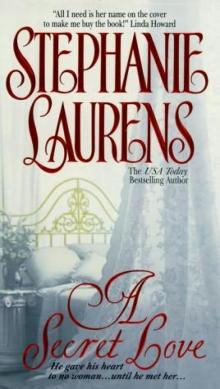 A Secret Love c-5
A Secret Love c-5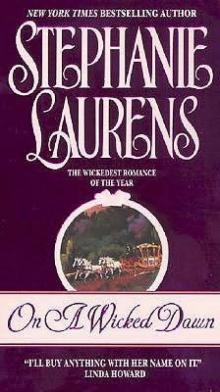 On a Wicked Dawn c-10
On a Wicked Dawn c-10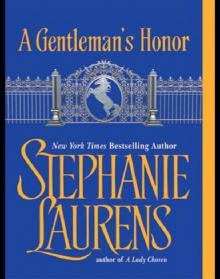 A Gentleman's Honor
A Gentleman's Honor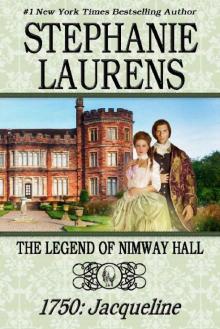 THE LEGEND OF NIMWAY HALL_1750_JACQUELINE
THE LEGEND OF NIMWAY HALL_1750_JACQUELINE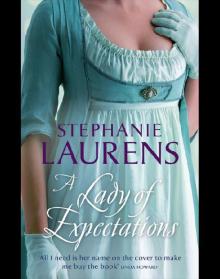 A Lady of Expectations
A Lady of Expectations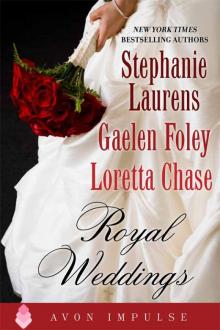 Royal Weddings: An Original Anthology
Royal Weddings: An Original Anthology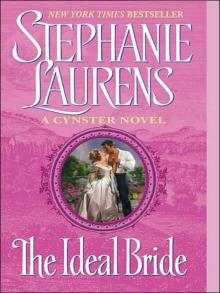 The Ideal Bride (Cynster Novels)
The Ideal Bride (Cynster Novels) Mastered by Love
Mastered by Love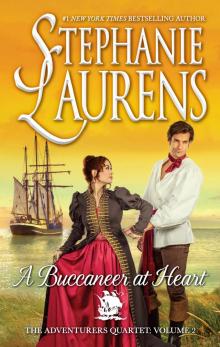 A Buccaneer at Heart
A Buccaneer at Heart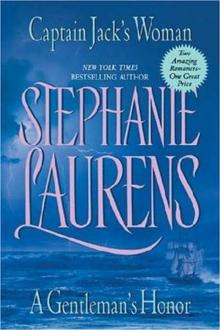 Captain Jack’s Woman / A Gentleman's Honor
Captain Jack’s Woman / A Gentleman's Honor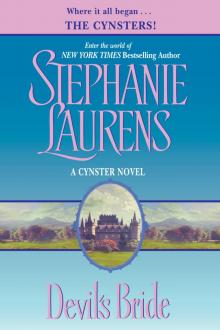 Devil's Bride with Bonus Material
Devil's Bride with Bonus Material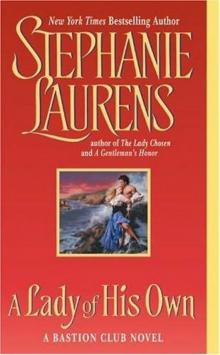 A Lady of His Own
A Lady of His Own A Secret Love
A Secret Love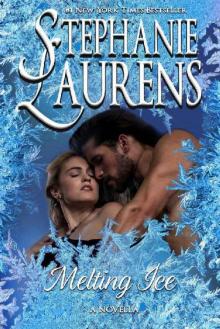 Melting Ice
Melting Ice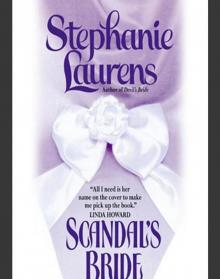 Scandal's Bride
Scandal's Bride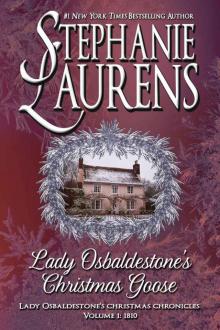 Lady Osbaldestone’s Christmas Goose
Lady Osbaldestone’s Christmas Goose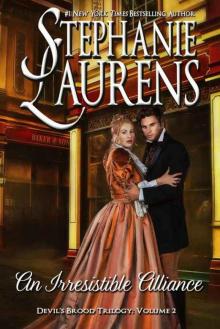 An Irresistible Alliance
An Irresistible Alliance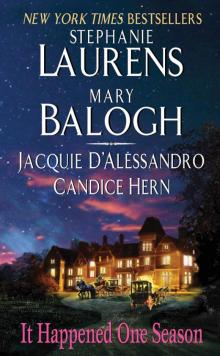 It Happened One Season
It Happened One Season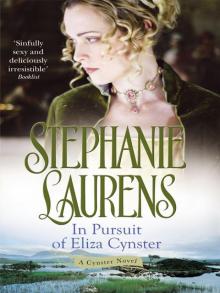 In Pursuit Of Eliza Cynster
In Pursuit Of Eliza Cynster Captain Jack's Woman
Captain Jack's Woman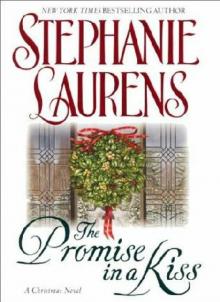 The promise in a kiss c-8
The promise in a kiss c-8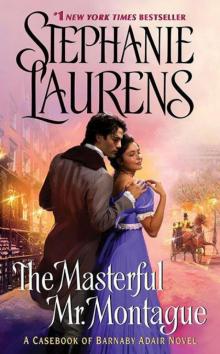 The Masterful Mr. Montague
The Masterful Mr. Montague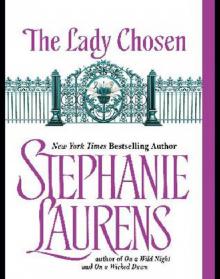 The Lady Chosen
The Lady Chosen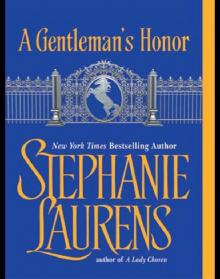 A Gentleman's Honor bc-2
A Gentleman's Honor bc-2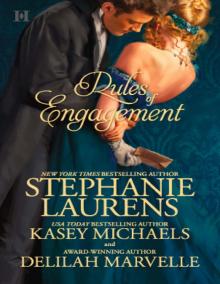 Rules of Engagement: The Reasons for MarriageThe Wedding PartyUnlaced (Lester Family)
Rules of Engagement: The Reasons for MarriageThe Wedding PartyUnlaced (Lester Family) Secrets of a Perfect Night
Secrets of a Perfect Night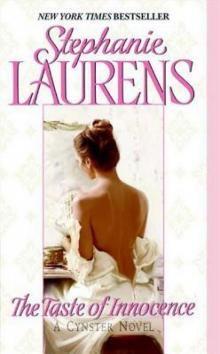 The Taste of Innocence
The Taste of Innocence On A Wicked Dawn
On A Wicked Dawn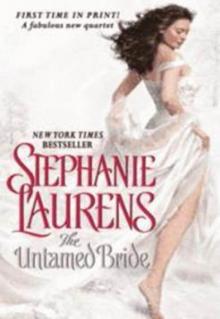 The Untamed Bride
The Untamed Bride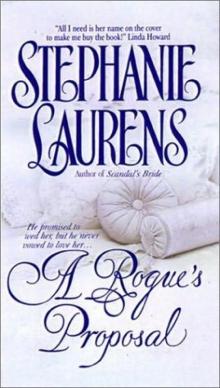 A Rogues Proposal c-4
A Rogues Proposal c-4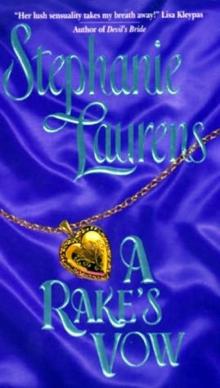 Rakes Vow c-2
Rakes Vow c-2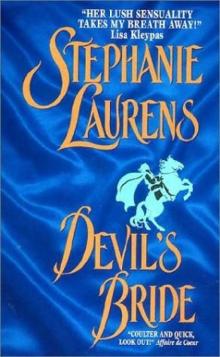 Devils Bride c-1
Devils Bride c-1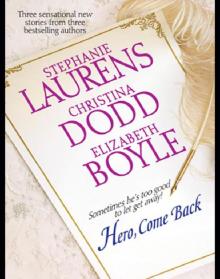 Hero, Come Back
Hero, Come Back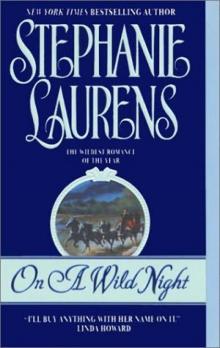 On a Wild Night c-8
On a Wild Night c-8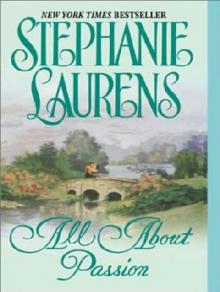 All About Passion c-7
All About Passion c-7